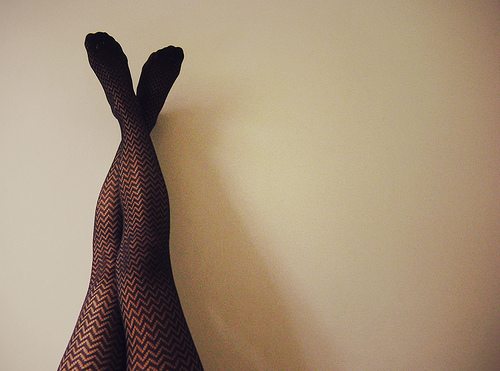
Bladder Bounce Back
 Nobody tells you about peeing, postpartum. The leaking. The “bladder control issues.” The straight-up, unsexy, embarrassing incontinence.
Nobody tells you about peeing, postpartum. The leaking. The “bladder control issues.” The straight-up, unsexy, embarrassing incontinence.
It’s in all the PREGNANCY books — first it’s the hormones ratcheting up the urgency, then it’s an expanding uterus pressing on your bladder, and finally it’s a full-term baby’s head and judo chops. All things that would lead you to believe that everything goes back to normal after you have the baby.
I had some problems, particularly during my first pregnancy. Chronic urinary tract infections, an already-jumpy bladder, a job that often interfered with regular bathroom breaks, and a very large baby. Laughing or sneezing soon became an exercise in terror. But I was prepared for that. I crossed my legs and did my Kegels. The symptoms vanished after the birth, just like I assumed they would.
My second pregnancy was a breeze in that regard, and with a scheduled c-section on the calendar I never really gave much thought to the state of my pelvic floor. I’d be fine, just like the first time.
HA. HAAAAAA. Lordy, I’m doing Kegels right now.
Pregnancy and Your Bladder
So there are varying degrees of awfulness here: there’s the occasional leaking when you sneeze or laugh, which is annoying but generally tolerable. Then there’s the crazy urgency, making every time you have to pee a race to the bathroom and oh God your belt your zipper your pants hurry. And for some women we’re talking honest-to-God zero-control adult-diaper-level incontinence.
If you had problems during your pregnancy, you are MUCH more likely to suffer after the birth as well. Same goes if you’re overweight or a smoker. Vaginal births (and forceps, and bigger babies) also up your chances, though a c-section is no guarantee, particularly if you labored and pushed for awhile before getting the surgery. And then there’s me, who had more problems after a labor-free scheduled c-section. Sometimes it’s just the stress of pregnancy itself, and nothing to do with the birth.
So what should you do, if it happens to you? First, relax. It’s normal. It’s not permanent. It will get better. It might take awhile, but it will get better. Even if you’re dealing with the worst-case scenario, where you can’t stand up and walk across the room without peeing yourself, it doesn’t mean it’s an obstetric fistula and surgery or a life doomed to Depends.
The problem will USUALLY be at its worst during the first two weeks postpartum, while your uterus is still contracting back to its normal size and position off your bladder. Everything I’ve read about postpartum incontinence (that I had to SEEK OUT SPECIFICALLY, because it sure as hell wasn’t in any of those new baby books), mentions a range of “three to six months” before you regain “complete” control. (To which I snort dismissively at, because while I didn’t have any super severe problems, I’m a full year postpartum and still wouldn’t consider my bladder to be in its original factory-new condition.)
Things That May Help
1. Kegels. Yeah. Those things. I vaguely remember having trouble doing Kegels right away — too much pain, feeling generally kind of obliterated DOWN THERE — so do your best and start small, just like ramping up any kind of exercise routine. (Teh Innernet says 30 a day is ideal. If you can do five at first, I declare you Pelvic Floor Champion.)
2. A schedule. Empty your bladder every 30 minutes, rain or shine, urge or no urge. Once you’re a couple of weeks out from the delivery, gradually increase the time between bathroom trips each day. (This is pretty much how I potty-trained my 2.5 year old, by the way. The more you know!)
3. Pads. Big ones. Look, you’re wearing those ginormous pads anyway, at first. Ask for extras from the hospital.
4. Colace. Again, something you’ll be taking post-birth anyway, but constipation puts even more pressure on your bladder.
5. Clenching. As in, crossing your legs and flexing your pelvic and thigh muscles, pre-sneeze or laugh. It’s stupid but it works.
Things That Do NOT Help
1. Alcohol, caffeine, soda, citrus, acidic foods. Avoid these for now.
2. Urinary tract infections. If you think you have one (i.e., there’s burning in addition to the urgency), get it treated ASAP. Drink cranberry juice or take those cranberry tablets.
3. Dehydration. Don’t do the “I’ll drink less/pee less” thing. Not only is dehydration just a terrible postpartum idea in general, you’re actually just upping your chances of a UTI.
And finally, yes, there is a surgical procedure to correct stress incontinence. If months go by and you are still having problems despite daily Kegels, and you test negative for UTIs, then talk to your doctor or midwife. Don’t let them tell you it’s “normal” if you believe you’re struggling with something that’s out of the realm of “normal.” You can also contact a physical therapist, as incontinence is actually something that many of them can treat. (Think post-injury or illness — it’s so very common.)
Ah, the indignities of motherhood. You have to laugh about this stuff…just make sure you cross your legs first.
Photo credit: Flickr/helgasms!

